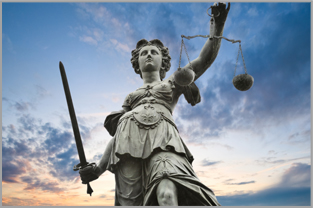Despite the numerous television programs and films depicting the job of a (usually American) criminal defence lawyer, I am not sure that the general public really understands or appreciates the job that we do.
What is a criminal lawyer?
The term "criminal lawyer" is generic and used to describe anyone who is a licensed legal practitioner qualified to give legal advice in the area of criminal law. So, to be clear, solicitors (like me) and barristers are both types of lawyer. Some also (wrongly) use the term "lawyer" to refer to non-licensed practitioners, such as caseworkers or outdoor clerks.
Always make sure that you understand the status of the person who is handling your case, and be clear in your mind as to who is responsible for the day-to-day conduct of your case. I am a solicitor regulated by the Law Society of England and Wales, under roll number 246359.
What is a barrister?
Because I am a solicitor I am going to concentrate of the role that solicitors undertake for clients but, before I do, a few words on the role of a barrister. In general1, barristers in England and Wales are hired by solicitors to present cases in court. In criminal cases, a barrister normally only becomes involved following charge, once advocacy services are required.
In very simple terms, a barrister's role is to take what the client says has happened, formulate and ask questions of witnesses and make persuasive arguments and representations with the ultimate goal of obtaining the best possible result for the client.
In the past, it was necessary for clients to use a solicitor to instruct a barrister but in 2004 a Public Access Scheme was introduced; this allows members of the public to instruct a barrister directly. You can read the Bar Standards Board guidance on how this scheme works and whilst it is often claimed that instructing a barrister without having to "go through" a solicitor can save clients money, the reality is that unless the barrister is authorised to conduct litigation on a client's behalf, and / or because of the complexity of the case, and / or because a client may need more assistance than the barrister alone can provide, barristers themselves often recommend that clients instruct a solicitor to help prepare their case. It is telling that if an accused's defence is funded by way of legal aid a barrister cannot act without the instruction of a solicitor.
What is a solicitor?
A solicitor is a qualified legal professional who provides expert legal advice and support to clients. For criminal cases, more often than not the client is a private individual, but because a lot of the work I do is categorised as business crime and regulatory enforcement law I am often asked to represent private companies or public sector organisations. Solicitors specialising in criminal defence work usually get involved in a case from the outset, immediately following a client's arrest (and sometimes before).
Why pay for a solicitor as well as a barrister
If you are working to tight budget then I can completely understand the attraction of paying for one lawyer instead of two. If your case goes to trial then you are certainly2 going to need an advocate to represent you but in my experience clients who are defended by a team comprising an expert lawyer in advocacy and an expert lawyer in litigation stand the best prospects of securing a successful outcome.
I hire an advocate because of his / her court craft, which they have honed over the years. Their skills are developed with experience, over time. I want them to be in court most days, finding out what works with particular judges and juries. We all know that attitudes change over time and you want an advocate who has tried and tested his / her skills of persuasion in front of countless juries over many years. Those advocates are unlikely to be able to devote the time required out of court to prepare your case properly. That is why I say you need to be defended by a team.
So, with all that said and done, what does a criminal solicitor do?!
In our adversarial system, in which the state has agencies for the discovery of evidence far superior to anything which even the wealthiest client could employ, and in which such agencies and the prosecution control the investigatory process, an accused’s right to fair disclosure is an inseparable part of his right to a fair trial. To be effective a criminal lawyer must analyse the evidence and investigate the case from the moment the first instructions are received, and thereafter through all the stages of disclosure. It is not enough to rely upon the manifest inadequacies in the prosecution case as the route to an acquittal:
1 I say "general" because all solicitors have rights of audience in the magistrates' court and so can conduct advocacy there. Some solicitors also have higher rights of audience, which means that they can represent clients in the crown court and high court in exactly the same way as a barrister.↩
2 I say "certainly" but really I mean you are "best advised". There is no requirement for an accused to be legally represented, although in some specific cases there is a prohibition on defendants cross-examining complainants themselves, and even when it is your freedom that is on the line your passion and fighting spirit cannot make up for the experience and professionalism that a lawyer like me can bring to your case.↩

